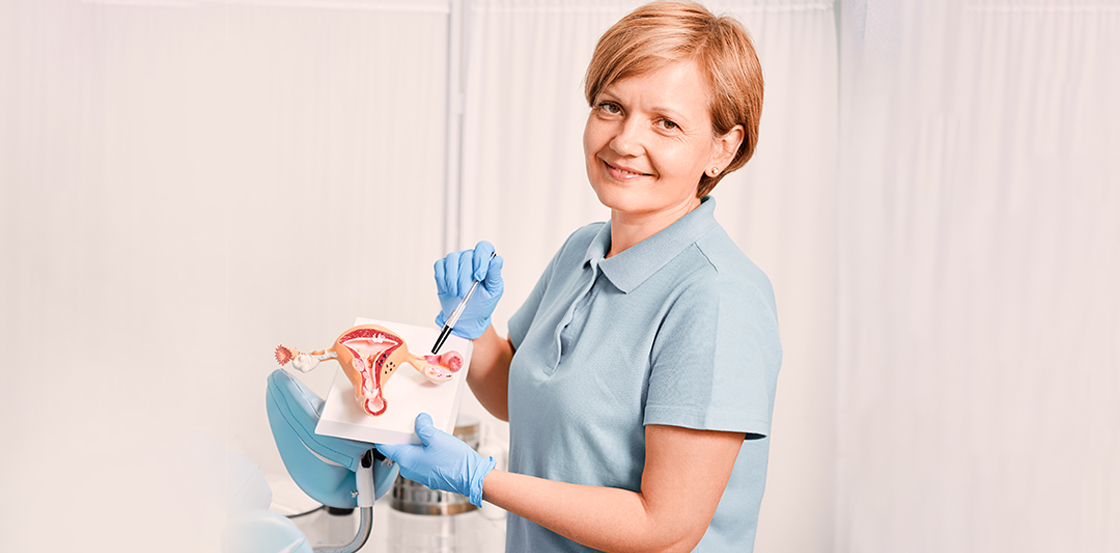Post link copied to clipboard!

Nowadays, prioritising your health is of utmost importance. One crucial aspect of women’s health is cervical cancer prevention, and a Pap smear is a vital tool in this regard. At our private gynaecology clinic, Gloucester London, our best specialists offer the most accurate and detailed information about Pap smears, helping you make well-informed decisions.
Read and learn more about Pap smears to get an overall understanding.
A Pap smear (also called Pap test) is a non-invasive medical procedure for screening for cervical cancer. It entangles collecting cells from the cervix, the lower part of the uterus that connects to the vagina. The collected cells are then examined under a microscope to detect abnormalities or precancerous changes.
Regular Pap smears play a crucial role in the early detection and prevention of cervical cancer. By identifying abnormal cell changes early on, healthcare providers can take necessary actions to prevent cancer development. In line with healthcare professionals’ advice, women should receive Pap smears at 21 years and maintain regular intervals later.
The procedure for a Pap smear is simple and relatively quick. During a Pap smear:
We recommend Pap smears for:
Reality: While some women may experience mild discomfort, Pap smears are generally not painful. If you are concerned, you can talk to your healthcare provider about your fears or concerns beforehand.
Reality: Pap smears are essential for all individuals with a cervix, regardless of sexual activity. It’s a screening tool for cervical health, not just for detecting sexually transmitted infections.
Reality: Pap smears primarily identify abnormal cell changes that could lead to cancer if left untreated. If the test finds cancerous cells, healthcare professionals will perform additional tests to confirm the diagnosis.
Taking charge of your health begins with understanding your options and making informed decisions. Regular Pap smears are quintessential for maintaining your cervical health and preventing cervical cancer. Don’t wait any further! Schedule your Pap smear appointment today and take a proactive step towards a healthier future. Contact us for more information, and get expert guidance on Pap smears and women’s health.
A smear test, also known as a Pap test, is a screening procedure to detect abnormal changes in cervical cells, aiding in the early detection of cervical cancer. It plays a vital role in women’s health by identifying potential risks and enabling timely intervention.
Women should start getting smear tests from the age of 25 onwards. We recommend attending regular smear test appointments based on your healthcare provider’s guidance for effective cervical health management.
In most instances, it is advisable to undergo a smear test every three years. However, the frequency may vary based on individual health factors and guidelines. Consult your healthcare professional to determine the appropriate schedule for your needs.
Yes, smear tests can identify abnormal changes that might not be cancerous but could lead to future health issues. They can detect infections, inflammation, or cell changes caused by the Human Papillomavirus (HPV), providing valuable insights into your cervical health.